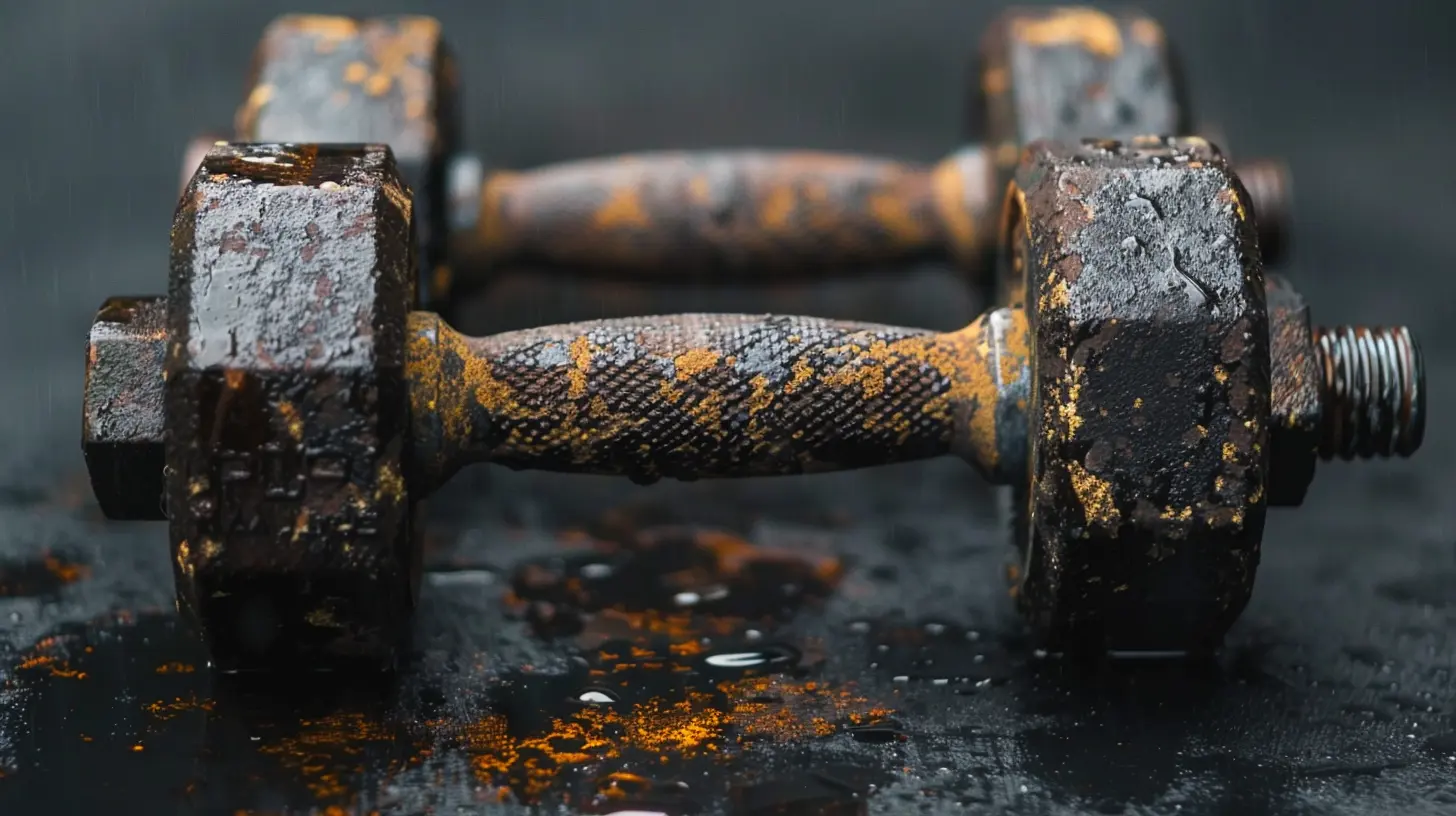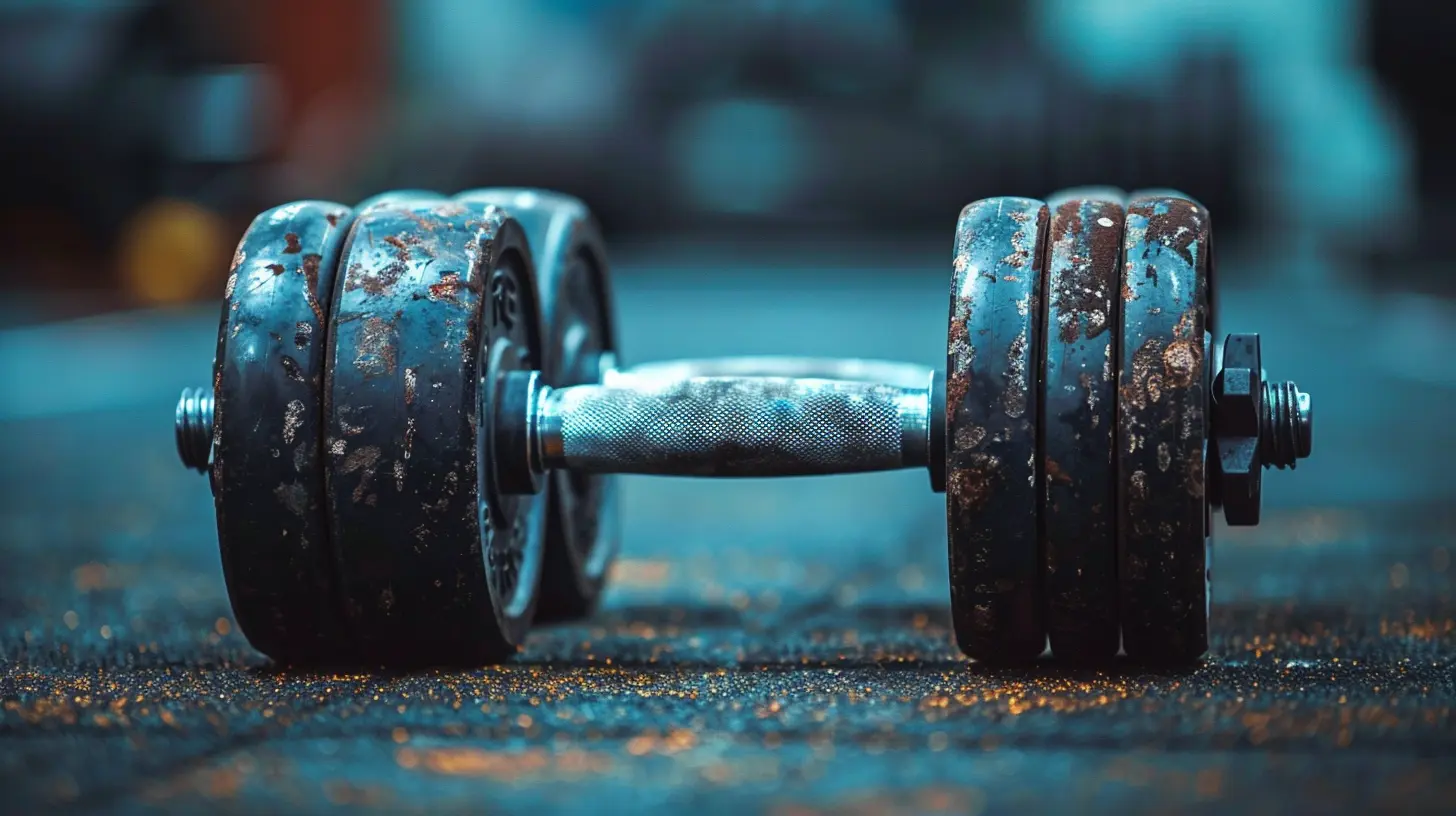Post-Workout Recovery Strategies to Build Strength
28 May 2025
So, you just smashed a workout—maybe you crushed some heavy deadlifts, dominated a tough HIIT session, or finally held that plank longer than your personal best. Now what? If you want to build strength, recovery is just as important as the actual workout. That post-workout phase is when your muscles repair, grow, and get ready for the next round.
But let’s be real—many of us skip this part. We shower, grab a quick snack (or forget to eat entirely), and move on with our day. If that sounds familiar, it’s time for a change! Strength gains happen when you treat your muscles with care after they’ve been put through the wringer.
In this guide, we’re diving into the best post-workout recovery strategies to help you build strength efficiently while avoiding burnout and injuries. 
Why is Post-Workout Recovery So Important?
Think of your body like a phone battery. After a tough workout, you're running on low power. If you don’t plug it in (aka recover properly), your performance will suffer, and you might even crash (hello, fatigue and injuries). Recovery helps your muscles rebuild stronger, reduces soreness, and keeps you feeling energized for your next session.Let’s break down the best strategies for top-notch recovery. 
1. Cool Down Properly
Ever finished a workout and immediately flopped onto the couch? Yeah, we’ve all been there. But skipping a cool-down can leave your muscles tight and increase soreness.How to Cool Down Like a Pro:
- Spend at least 5-10 minutes doing low-intensity movement (like walking or cycling) to let your heart rate gradually return to normal.- Follow up with dynamic stretches or mobility work—think leg swings, arm circles, or hip stretches.
By giving your body time to transition out of intense exercise mode, you’ll feel way better the next day. 
2. Hydrate Like Your Strength Depends on It (Because It Does!)
Sweating buckets during a session? You’re losing more than just water—you’re also saying goodbye to electrolytes like sodium and potassium, which your muscles need to function properly.Hydration Hacks:
- Drink at least 16-24 oz of water post-workout to replenish lost fluids.- If your workout was super intense, consider an electrolyte drink to restore balance.
- Pay attention to your urine color (TMI, but it works!)—pale yellow = good, dark = drink up!

3. Refuel With the Right Nutrition
Your post-workout meal is like the pit stop for your muscles—it delivers the fuel they need to repair and grow.What to Eat After a Workout:
- Protein (for muscle repair): Think chicken, eggs, fish, Greek yogurt, or plant-based options like tofu and lentils.- Carbs (to replenish energy): Opt for whole grains, fruits, or starchy veggies like sweet potatoes.
- Healthy Fats (for overall recovery): Avocados, nuts, and olive oil are great choices.
Timing Matters
Aim to eat within 30-60 minutes after exercise to maximize recovery. If a full meal isn’t an option, go for a protein shake or a banana with peanut butter.4. Sleep: The Secret Weapon for Strength Gains
Strength isn’t just built in the gym—it’s built while you sleep. During deep sleep, your body releases growth hormone, which helps muscles repair and grow.Better Sleep = Better Recovery
- Aim for 7-9 hours of quality sleep per night.- Keep your bedroom cool and dark—your body recovers best in a sleep-friendly environment.
- Try a wind-down routine (limit screen time, read, or do some gentle stretching).
Skimping on sleep? Expect slower muscle gains and more fatigue.
5. Active Recovery: Keep Moving, Just a Little
You don’t have to be a couch potato on rest days! Light movement actually helps speed up muscle recovery by improving blood flow and reducing soreness.Great Active Recovery Options:
- Walking or light jogging- Yoga or mobility work
- Swimming or cycling at a low intensity
The key? Keep it low-impact and easy—this isn’t the time to push hard.
6. Stretching & Foam Rolling: Your Muscles’ Best Friends
Foam rolling might feel like a love-hate relationship (ouch, but in a good way), but it helps relieve tension and keeps muscles loose.How to Use Them Effectively:
- Foam roll major muscle groups (quads, hamstrings, glutes, back) for 1-2 minutes each.- Stretch after every workout—focus on areas that feel tight or overworked.
- Hold each stretch for 20-30 seconds and breathe deeply.
This helps prevent stiffness, improves flexibility, and keeps you feeling mobile.
7. Listen to Your Body—Seriously, It Knows Best
Your body is constantly giving you feedback. Sore beyond belief? Feeling drained? It might be time to take a step back.Signs You Might Need Extra Recovery:
- Your muscles feel super tight and sore for days.- You’re constantly fatigued and sluggish.
- Your strength is plateauing or decreasing.
- You’re getting more aches, pains, or even injuries.
If this sounds familiar, incorporate extra rest days, gentle stretching, or even a massage to help your muscles bounce back.
8. Consider Supplements to Support Recovery
While food should always be your main source of nutrients, some supplements can give you an extra recovery boost.Popular Recovery Supplements:
- Protein Powder – Helps meet your protein needs for muscle repair.- BCAAs (Branched-Chain Amino Acids) – May reduce muscle soreness and support recovery.
- Creatine – Aids in strength gains and muscle regeneration.
- Magnesium – Promotes muscle relaxation and prevents cramps.
- Omega-3s – Reduce inflammation and support muscle health.
Not sure what’s right for you? Check with a nutritionist or trainer for guidance.
Final Thoughts: Recovery is the Key to Strength Gains
At the end of the day, how well you recover determines how strong you become. Pushing yourself without adequate recovery is like revving your car engine with no oil—it won’t last long.Take the time to cool down, refuel, sleep well, stay hydrated, stretch, and listen to your body. Strength isn’t built in a single workout; it’s built through consistency and smart recovery.
So, next time you finish a killer session, don’t rush past recovery—embrace it, and watch your gains soar!
all images in this post were generated using AI tools
Category:
WorkoutsAuthor:

Madeline Howard
Discussion
rate this article
3 comments
Marissa McIlwain
Great article! Remember, recovery is just as vital as your workout. Embrace these strategies to nourish your body and build strength effectively. Consistent self-care leads to powerful progress. Keep pushing forward, and celebrate every step of your fitness journey!
June 4, 2025 at 4:36 PM

Madeline Howard
Thank you for your thoughtful comment! I completely agree—recovery is essential for building strength and achieving fitness goals. Let's prioritize self-care together!
Charlotte McKinley
Great tips! I love how important recovery is for building strength. It’s easy to overlook, but taking the time to refuel and stretch really makes a difference. Can’t wait to try some of these strategies after my next workout!
June 2, 2025 at 3:08 AM

Madeline Howard
Thank you! I'm glad you found the tips helpful. Recovery is indeed vital for maximizing strength gains. Enjoy trying out the strategies after your next workout!
Samantha Anderson
Great tips! Recovery is truly essential.
May 30, 2025 at 3:32 PM

Madeline Howard
Thank you! I'm glad you found the tips helpful. Recovery is key to building strength effectively!



